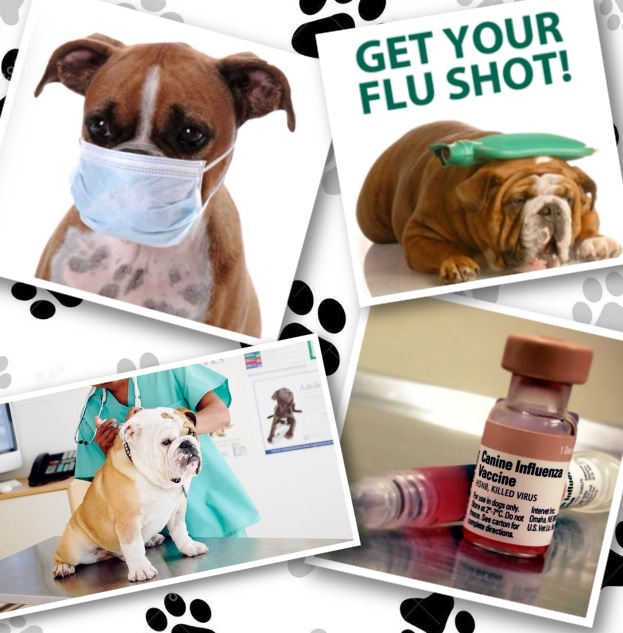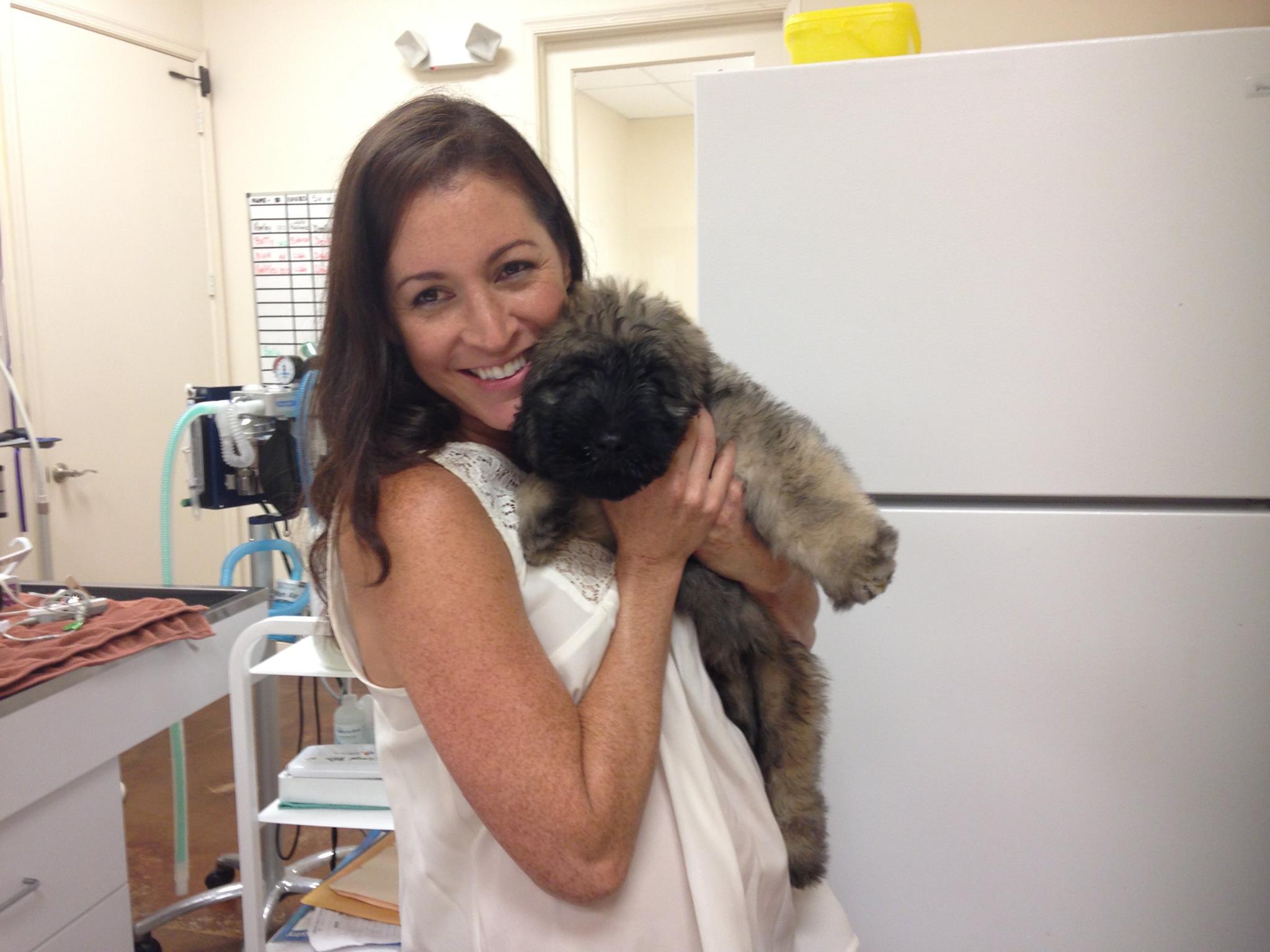
Canine Influenza- What Is All The Hype About?
Hi Everyone! Due to the recent outbreak of canine influenza in Chicago, I have been getting an influx of phone calls, appointments, and questions about the disease and how to keep our pets safe. Carrie, in particular, has been driving me crazy and I need to assure her daily that Newman will be fine. For the sake of Carrie, and everyone else, I wanted to take some time to discuss the breakout in Chicago, canine influenza in general, and what we can do to protect our pets.
The Chicago Outbreak. A canine influenza A H3N2 virus is responsible for an outbreak of the dog flu in the Chicago area in March, 2015. Vets in Chicago have reported more than 1,000 cases of canine infectious respiratory disease. Six dogs have died so far. There have been two canine influenza viruses that have been identified worldwide: an influenza A H3N8 virus and an influenza A H3N2 virus. In the past, canine influenza A H3N8 viruses have been identified in dog populations in the United States. However, dog flu virus responsible for the current outbreak in dogs is an H3N2 virus similar to Asian H3N2 dog flu viruses that have been detected in dogs in parts of Asia since 2007.
What is canine influenza? Dog flu is a contagious respiratory disease in dogs. Two canine influenza viruses have been identified worldwide: an influenza A H3N8 virus and an influenza A H3N2 virus (the strand that was isolated in the Chicago outbreak).
How can my pet contract canine influenza? Canine influenza is highly contagious and is transmitted through direct contact, contaminated bowls or toys, or even by touching another dog after you have touched an infected dog. Dogs that are around other infected dogs, such as in boarding facilities, dog parks, grooming facilities, and shelters are at a higher risk of contracting the disease.
Can the disease be passed on to me? To date, there is no evidence of transmission of dog flu virus from dogs to people and there have been no reported human infections with the canine influenza viruses.
What are the clinical signs? Generally speaking, the dog flu infections are mild and dogs are able to recover in a couple of weeks. Sometimes, however, the infection can become severe. Signs and symptoms to look for include:
- Fever
- Lethargy
- Lack of appetite
- Coughing
- Runny Nose
How does my veterinarian diagnose canine influenza? Your veterinarian can run a blood test or a PCR test, which involves swabbing your dog’s oral cavity. These tests can identify the presence of canine influenza virus. Other diagnostic tests, such as radiographs, urinalysis, and further blood work may be recommended.
How do you treat canine influenza? Unfortunately, there is no specific treatment for canine influenza, and like the human flu, it has to run its course, which could take a few weeks. Most dogs with mild symptoms will not need any treatment, though dogs with more severe symptoms may need supportive care with fluids, supplemental feedings, or even antibiotics in the event of a secondary infection such as pneumonia.
How can I prevent my dog from contracting canine influenza? Be aware of any outbreaks in your area and react accordingly. If you come into contact with a dog that is showing any of the clinical signs listed above, wash your hands and change your clothes before touching your dog. In addition, keep toys and bowls clean.
When it comes to boarding, make sure to ask the facility staff if they have had any outbreaks of infectious diseases like canine influenza or kennel cough. Inquire about their vaccination requirements, and chose a facility that requires your pet be up to date on the kennel cough and influenza vaccination.
A vaccine to protect dogs against canine influenza A H3N8 has been available in the United States since 2009. It is not known yet whether the H3N8 dog flu vaccine will offer protection against the H3N2 dog flu virus. I am encouraging all my clients to have their pet vaccinated for influenza A H3N8.
I hope this helps to alleviate some of the anxiety associated with the current breakout in Chicago. If you are concerned your pet is showing any signs and may have contracted canine influenza, contact your veterinarian immediately and schedule an appointment. Except Carrie…I am sorry, Victoria Park Animal Hospital has closed for the evening (just kidding Cares. I love you and Newmie)! Have a great weekend everyone.





